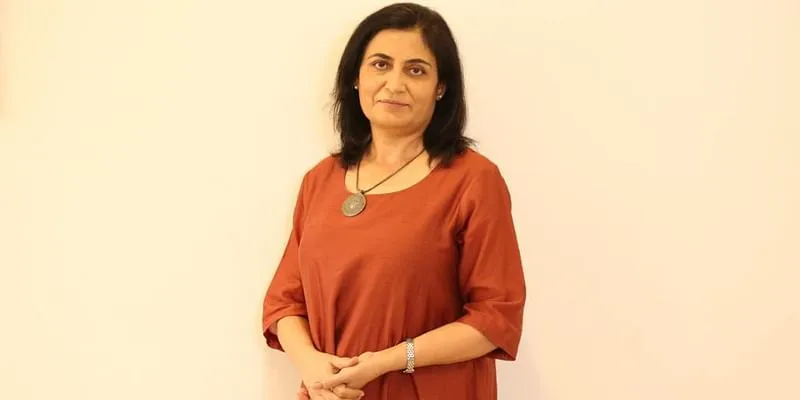At 55, Apurva Purohit starts up to help SHGs find a market for Maharashtrian foods
Apurva Purohit and her son, Siddharth, have started Aazol, a consumer products startup that aims to create a marketplace for traditional food made by self-help groups in Maharashtra.
After more than three decades of experience in the corporate world and writing two bestsellers, Apurva Purohit has started up at the age of 55.
Apurva recently launched Aazol Ventures Pvt Ltd, a consumer products company that aims to create a market for traditional food items made by self-help groups and micro-entrepreneurs by reconnecting Indian consumers to local foods of their regions.
in Marathi means the home of your maternal grandparents, and ffers food reminiscent of your aaji’s (grandmother's) kitchen.
“I think I have the courage and the support of the ecosystem to risk starting up at this age,” she says, beginning a conversation about Aazol and its pain point.
Apurva emphasises that in 2021, there can be no business that doesn’t come from the perception of ESG. “What are we doing for the environment, for sustainability, governance, and impact?” she asks.
She says the idea is to look at businesses that support environment-friendly practices and bridge the divide between urban and rural India. This led Apurva and her son, Siddharth (her co-founder), to approach rural self-help groups and micro-entrepreneurs, and create a marketplace for homegrown foods of Maharashtra.
Creating a marketplace
Apurva agrees that the government has done a fabulous job of funding them, but creating a sizeable marketplace for their products is critical to empower them.
“There are several farmers' collectives that have not been able to figure how to move beyond a 30-40 km radius. They lack logistics information, and financial and marketing backing to take their products to urban customers. This, coupled with the need for healthy food during the pandemic, puts Aazol in a good place,” she says.
Aazol has onboarded self-help groups, with Siddharth visiting parts of Maharashtra and speaking to members of 100 self-help groups that make different kinds of produce. They identified around 12 of them, with each group employing between three and 50 women to work with them.
“We went through a whole process of quality check – the food and safety standards, and what would fit into the grocery basket of not only a typical Maharashtrian but an urban metro-centric foodie. We zeroed in on 33 products. We also had certain norms for the groups – how many women they employ, how long have they been making the produce, is it something endemic to the region, and more,” she adds.
Apurva says Maharashtra is her karmabhoomi as she has been living in the state for a long time.
“I’m a big fan of Maharashtrian cuisine, and I think it’s highly underrated and not so well known as other cuisines of India. In a sense, it’s also about evangelising some great foods of the state,” she says.
She wants to incorporate foods from other states at a later stage.

Apurva Purohit
Sustainable and eco-friendly
Aazol’s products comprise rice, peeths, chutneys, masalas and papads, and are available on its website and Amazon. These are community and region-based foods – for example, there’s food typical of the Kolis or from Sholapur.
“One of the big advances India has made recently is that D2C brands have several platforms to choose from, including ecommerce and also influencers,” Apurva says.
Sourcing products locally also reduces the carbon print, and the brand aims to be eco-conscious in terms of how it’s made (pounded by hand) and packaging (paper bags, pouches, and reusable glass bottles are used).
In 45 days, Aazol has served close to 2,000 orders, and Apurva says the response is “heartening”.
“People have told us that it reminds them of their grandmother’s home or that some product reminded them of their childhoods. The product validation has been fantastic,” she shares.
Apurva is also in talks with resellers, especially women, to sell the products.
“I think it’s a beautiful and impactful collaboration of different MSMEs coming together. I want to see Aazol scale quickly and make a difference,” Apurva says.
Edited by Teja Lele








